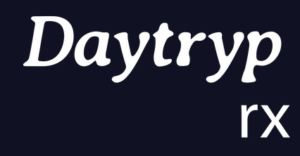The Dawn of a New Era: An Introduction to Psilocybin Microdosing in 2025
Setting the Scene: From Underground Phenomenon to Clinical Frontier
The landscape of mental health and wellness is undergoing a seismic shift. Once relegated to the fringes of counterculture and suppressed by decades of restrictive drug policy, psychedelic compounds are experiencing a dramatic and scientifically-driven renaissance. As of 2025, psilocybin—the psychoactive compound found in certain species of mushrooms—stands at the forefront of this transformation, moving from an underground phenomenon to a promising clinical frontier.1
This modern revival is fueled by a powerful convergence of factors: a surge of groundbreaking research published in top-tier medical journals, shifting cultural attitudes that are destigmatizing these substances, and growing bipartisan political support. The scale of this interest is staggering. A 2023 report estimated that 8 million people in the United States had used psilocybin, with half of them reporting that their last use was a microdose.2 This explosion in public interest has created an urgent need for credible, evidence-based information.
The global nature of this movement is undeniable, with major international conferences like Psychedelic Science 2025 in Denver convening the world’s leading scientists, therapists, policymakers, and advocates to share knowledge and shape the future of the field.3 This rapid expansion from a niche subculture into a broad demographic of wellness seekers demands a new level of rigor. The conversation has evolved beyond anecdotal reports to a sophisticated dialogue grounded in neuroscience, clinical data, and complex legal frameworks. The growing popular use, however, has outpaced the development of clear regulatory pathways, creating a significant “guidance gap.” Many individuals are navigating this new terrain with limited access to reliable information, often relying on unverified sources. This guide is designed to fill that gap, offering a responsible, harm-reduction-focused resource that reflects the state of the science and policy in 2025.
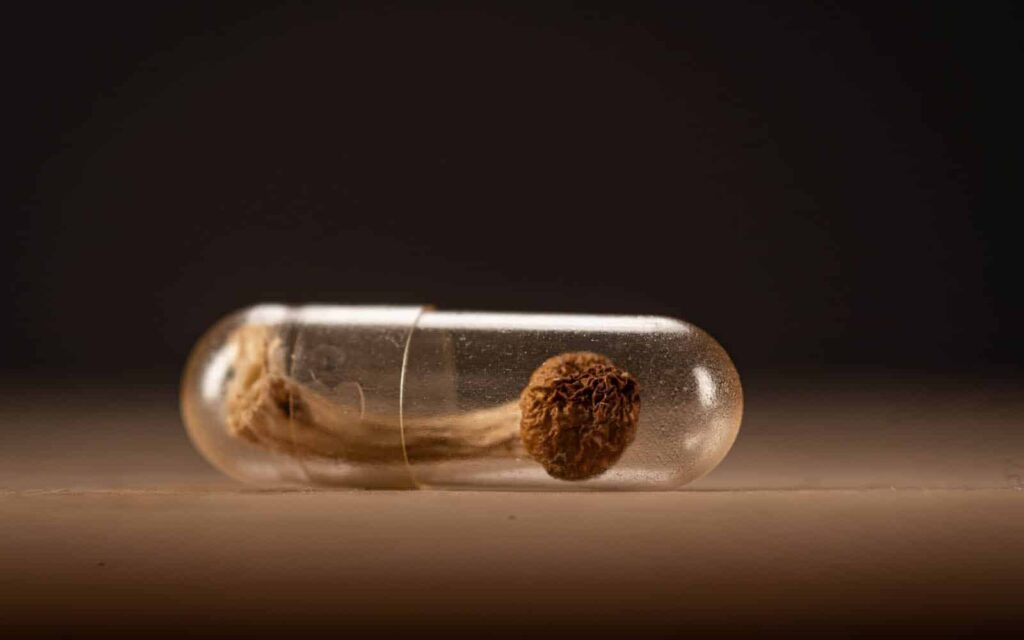
A Note from Daytryp Health: Our Commitment to Education and Future Access
PLEASE NOTE: Daytryp Health does not currently offer Psilocybin Therapy at our facilities. This guide is designed to be an educational and useful tool for those exploring or embarking on a psilocybin microdosing journey. We hope to offer this life-changing treatment as the law allows.
Daytryp Health supports the careful and intentional use of psilocybin, psychedelics, and all plant medicines, particularly when approached within a therapeutic, ceremonial, or sacred context. Our mission is rooted in providing safe, evidence-based, and transformative care. While we await the legal and regulatory frameworks that will allow for the clinical provision of psilocybin, we are committed to fulfilling our role as a trusted educational leader in the psychedelic wellness space. This guide is an extension of that commitment.(4)
The Pillars of a Meaningful Journey: Intention, Safety, and Professional Guidance
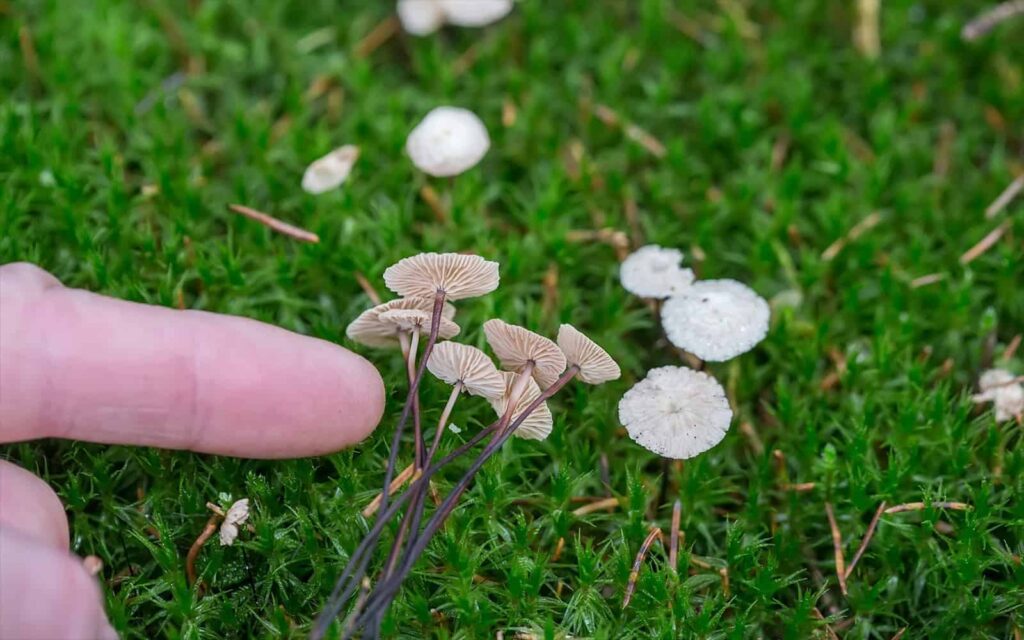
A successful and beneficial journey with psilocybin, whether at micro or macro doses, is not a passive experience. It is an active process built upon three foundational pillars: intention, safety, and professional guidance.
- Intention: The practice of setting clear, positive intentions is paramount. Before beginning, it is crucial to reflect on your motivations and what you hope to gain, whether it is improved focus, enhanced creativity, emotional healing, or personal growth. A clear intention provides a framework for the experience and a compass for the integration that follows.4
- Safety: Responsible use is non-negotiable. This includes understanding the critical importance of sourcing, as unregulated products carry significant risks, and the necessity of accurate dosing. Navigating the physical and psychological effects requires a deep respect for the substance and an awareness of potential challenges.6
- Guidance: The transformative potential of psychedelics is most profoundly and safely unlocked with professional support. Always speak to your primary care physician before you start your journey into the world of psychedelic medicines or make any changes to your existing health regimen. Furthermore, the process of psychedelic integration—making sense of the experience and translating its insights into lasting change—is an indispensable component of the therapeutic arc, and is best navigated with a trained professional.4
This guide is structured around these pillars, aiming to provide the knowledge necessary to approach psilocybin microdosing with the respect, caution, and informed optimism it deserves.
Understanding the Practice: What is Microdosing?
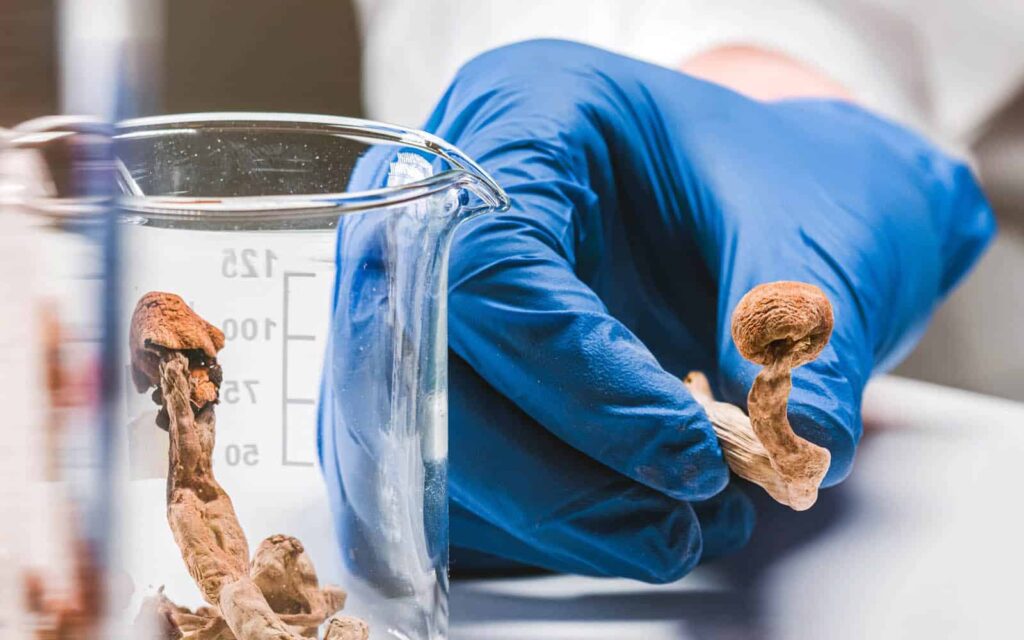
Defining the Sub-Perceptual Dose: Finding the Balance
Psilocybin microdosing is the practice of ingesting very small, sub-perceptual amounts of psychedelic mushrooms. The term “sub-perceptual” is key: the goal is to harness the potential physiological and psychological benefits of psilocybin without inducing the significant alterations in consciousness or sensory perception associated with a full psychedelic experience.4 As one expert aptly puts it, “If you see visions, it’s not a microdose”.9
A microdose is typically defined as 5-10% of a standard psychoactive dose. For psilocybin, this is generally estimated to be between 0.1 and 0.3 grams (100 to 300 mg) of dried Psilocybe cubensis mushrooms.4 The intention is to achieve subtle enhancements in mood, creativity, focus, and emotional resilience while maintaining the ability to engage in normal daily activities like work and socializing.
However, one of the primary challenges in microdosing is the inherent variability in the potency of mushrooms. The concentration of psilocybin can differ significantly from one mushroom to another, even within the same batch, and between different strains.4 This makes achieving a precise and consistent sub-perceptual dose difficult outside of a controlled, clinical environment where synthesized or meticulously standardized products are used. This variability underscores the importance of starting with a very low dose and exercising extreme caution, especially for those new to the practice.
A Brief History for a Modern Age: From Hofmann's Walks to the Scientific Renaissance
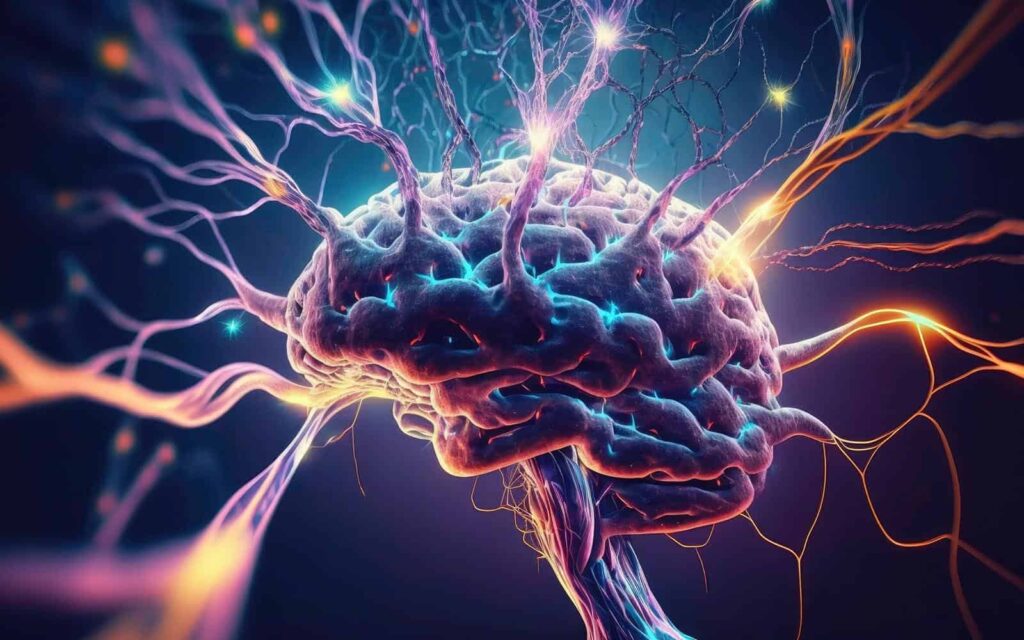
While the use of psychedelic mushrooms in ceremonial and spiritual contexts dates back millennia, the modern concept of microdosing has more recent scientific origins. The idea likely began with Albert Hofmann, the Swiss chemist who first synthesized lysergic acid diethylamide (LSD) in 1938. In his later years, Hofmann revealed that he frequently consumed sub-threshold doses of LSD to enrich his walks in nature, finding that it induced a quietly tranquil and alert state. He even proposed that LSD microdoses could serve as a healthier alternative to medications like Ritalin for attention-deficit disorders.4
The practice was more formally investigated by psychologist Dr. James Fadiman. In 1966, Fadiman devised a scientific method for documenting microdosing experiences and began sharing it with interested individuals. Though his research was unfortunately curtailed by the classification of psychedelics as Schedule I substances in the United States, Fadiman continued to discreetly collect self-reports from a growing community of microdosers over the next four decades. His meticulous collection of accounts from individuals using various compounds—including psilocybin, LSD, and others—revealed remarkably consistent themes: heightened concentration, creativity, optimism, and emotional balance.4
Fadiman’s pioneering work laid the groundwork for the current scientific renaissance. After decades of being stifled by the War on Drugs, researchers are now rigorously investigating the mechanisms and therapeutic potential of these compounds, building upon the preliminary observations of these early pioneers.1
The Brain on Psilocybin: A 2025 Scientific Deep Dive

The renewed scientific interest in psilocybin has shifted from simply observing its effects to understanding its fundamental mechanisms of action within the brain. Advanced neuroimaging technologies and molecular biology have provided an unprecedented window into how this compound can induce profound and lasting changes in mood, cognition, and perception. The latest research points to a trio of interconnected processes: direct action on the serotonin system, modulation of large-scale brain networks, and, most significantly, the promotion of structural neuroplasticity.
The Master Key: The 5-HT2A Receptor and the Serotonin System
At its core, the action of psilocybin is a story of molecular mimicry. After ingestion, the body rapidly converts psilocybin into its active metabolite, psilocin. The molecular structure of psilocin is remarkably similar to that of serotonin, a key neurotransmitter that regulates mood, cognition, and perception. This similarity allows psilocin to bind to and activate serotonin receptors throughout the brain, with a particularly high affinity for a subtype known as the serotonin 2A (5−HT2A) receptor.11
This binding at the 5−HT2A receptor is the “master key” that unlocks psilocybin’s profound effects. It initiates a cascade of downstream signaling within neurons that leads to changes in gene expression, brain connectivity, and ultimately, consciousness itself.12 Recent research has also uncovered another potential mechanism: psilocin acts as a potent anti-inflammatory agent. This is significant because neuroinflammation is increasingly understood to be an underlying factor in a significant subset of psychiatric conditions, particularly major depressive and anxiety disorders. By exerting anti-inflammatory effects, psilocybin may address a core physiological driver of these conditions, offering a novel therapeutic pathway distinct from traditional antidepressants.11
Quieting the Inner Critic: Modulating the Default Mode Network (DMN)
One of the most consistent findings from fMRI studies of the psychedelic state is psilocybin’s effect on the Default Mode Network (DMN). The DMN can be thought of as the brain’s “internal narrator” or “control center” for self-referential thought. It is a collection of brain regions that is most active when we are engaged in introspection, thinking about ourselves, recalling memories, or worrying about the future.4
In certain mental health conditions, particularly depression and anxiety, the DMN can become overactive and rigid. This hyperactivity is associated with the hallmark symptom of rumination—the tendency to get stuck in rigid, repetitive, and self-critical negative thought loops. Psilocybin has been shown to profoundly “disrupt” this network. It significantly decreases connectivity and activity within the DMN, effectively quieting the inner critic and breaking the cycle of rumination.4 This disruption is not a shutdown but a reorganization. By temporarily relaxing the grip of the DMN, psilocybin allows for a state of increased “desynchronization” across brain networks. This means that brain regions that do not normally communicate with each other begin to form novel connections, leading to greater mental flexibility, new perspectives, and emotional breakthroughs.3 This network-level reset is believed to be a key component of psilocybin’s therapeutic power, allowing individuals to step outside of their entrenched patterns of thinking and feeling.
The Plasticity Engine: How Psilocybin Promotes Neurogenesis (2025 Update)
Perhaps the most exciting frontier in psychedelic science is the discovery that psilocybin actively promotes neuroplasticity—the brain’s innate ability to reorganize itself by forming new neural connections. This is not merely a functional change; it is a structural one. The evidence suggests that psilocybin can physically change the brain’s architecture in ways that support healing and growth. This mechanistic understanding provides a powerful explanation for the rapid and sustained antidepressant effects observed in clinical trials.
The process begins with the activation of the 5−HT2A receptor, which triggers crucial intracellular signaling pathways, most notably the BDNF (brain-derived neurotrophic factor) and mTOR (mammalian target of rapamycin) pathways.12 These pathways are essential regulators of neuronal survival, growth, and synaptic plasticity. Their activation by psilocybin leads to tangible, measurable changes in the structure of neurons, particularly in the prefrontal cortex, a region vital for executive function and emotional regulation.
These structural changes manifest in two primary ways:
Spinogenesis and Dendritogenesis: Research has shown that psilocybin induces the rapid and sustained growth of dendritic spines—the small protrusions on a neuron’s dendrites that receive signals from other neurons. It also increases the complexity of the dendritic “arbors,” the branching structures that allow a single neuron to form thousands of connections. In essence, psilocybin helps neurons grow more branches and connection points, enhancing their ability to communicate.12
Synaptic Rewiring: Alongside this structural growth, psilocybin increases the expression of key synaptic proteins, such as PSD-95 and synapsin-1. These proteins are like the mortar that strengthens and stabilizes the new connections (synapses) being formed. This process helps to restore synaptic connectivity that may have been lost or degraded due to chronic stress, trauma, or depression.12
The implications of this are profound. Psilocybin appears to create a temporary “neuroplastic window”—a period of heightened brain flexibility where the formation of new, healthy thought patterns and emotional responses is facilitated. The drug itself opens the window; the therapeutic work done during and after the experience is what helps to furnish the room. This scientific framework provides a compelling rationale for why psychedelic-assisted therapy is so critical. The therapy provides the structure, guidance, and tools necessary to take full advantage of this temporary state of enhanced learning, helping to translate the transient insights of the psychedelic experience into lasting, positive behavioral change.15 This reframes the experience from a passive “trip” to an active process of “rewiring” the brain for wellness.
The Clinical Frontier: Therapeutic Potential and the Latest Evidence
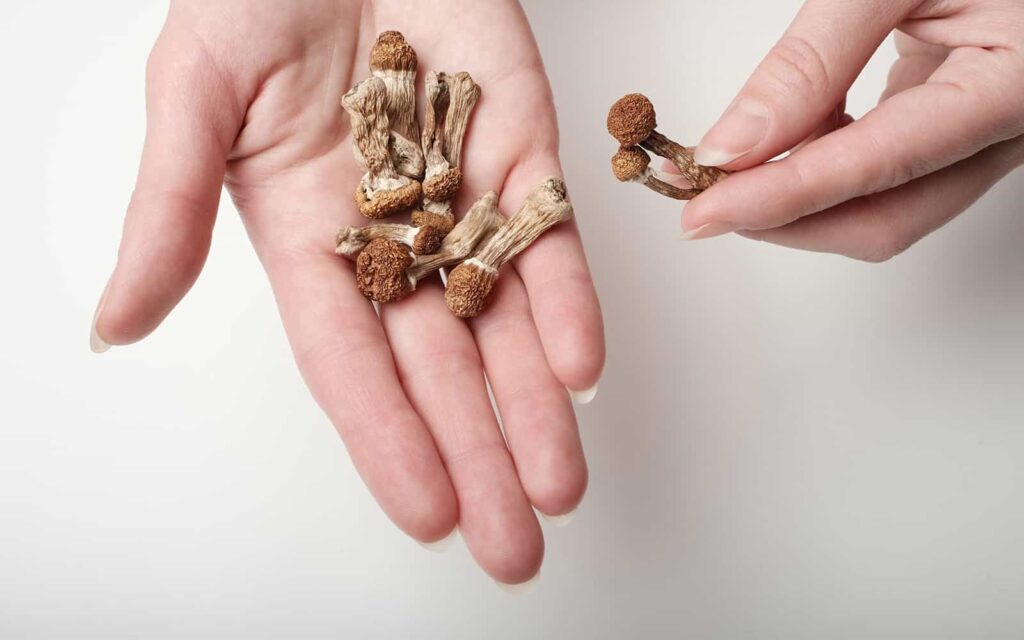
The scientific renaissance in psychedelics is built on a foundation of rigorous clinical research. Over the past decade, and particularly between 2023 and 2025, a wealth of data has emerged from trials at leading institutions like Johns Hopkins, UCSF, and Imperial College London. This research is not only confirming the therapeutic potential of psilocybin for mood disorders but is also expanding into a range of other challenging conditions. At the same time, the scientific community is grappling with the complexities of microdosing, working to untangle its true pharmacological effects from the powerful influence of user expectation.
A New Hope for Mood Disorders: 2025 Clinical Trial Data on Depression & Anxiety
The most robust evidence for psilocybin’s efficacy lies in the treatment of depression. Multiple systematic reviews and meta-analyses published in 2023 and 2024, synthesizing data from numerous randomized controlled trials, have confirmed that psilocybin produces a large and significant antidepressant effect compared to placebo or other control conditions.16 These effects are not only rapid, often appearing within days of a single administration, but have also been shown to be sustained for weeks, months, and in some cases, up to a year.18
Researchers are now focusing on specific, difficult-to-treat populations where conventional treatments have failed. An open-label trial published in early 2025 showed that a single dose of psilocybin was safe and effective for patients with severe treatment-resistant depression (TRD), defined as having failed at least five previous treatments.19 Other studies are targeting anhedonia—the profound loss of joy and pleasure that is a core and often intractable symptom of major depression—exploring whether psilocybin can “rewire” the brain’s reward circuits to restore positive affect.20
These clinical trials have also provided crucial insights into dosing. The evidence consistently suggests that the therapeutic effects are dose-dependent. Meta-analyses indicate that medium-to-high doses, typically in the range of 10 mg to over 30 mg of psilocybin, produce the strongest and most lasting antidepressant outcomes.16 This stands in stark contrast to the sub-perceptual doses used in microdosing and suggests that the profound psychological experience occasioned by a full dose may be integral to its therapeutic mechanism.
Beyond Depression: Emerging Applications for PTSD, Addiction, and Chronic Pain
While depression has been the primary focus, the clinical frontier for psilocybin is rapidly expanding. Recognizing its potential to disrupt rigid, maladaptive patterns of thought and behavior, researchers are investigating its use for a variety of other conditions.
PTSD and Alcohol Use Disorder (AUD): A landmark study, PsiloStudy, began recruiting in 2025 to explore the safety and effectiveness of psilocybin-assisted therapy for a particularly challenging population: veterans and first responders with co-occurring PTSD and AUD. This is the first trial of its kind and holds significant promise.21
Addiction: Beyond alcohol, psilocybin is being studied for its potential to aid in recovery from other substance use disorders, including nicotine and opioid dependence. The theory is that by promoting neural adaptability and facilitating profound insights, psilocybin can help individuals reframe the destructive habits and behaviors associated with addiction.4
Other Conditions: Major research centers are launching or planning trials to investigate psilocybin for a wide array of ailments, including anorexia nervosa, chronic low back pain, end-of-life anxiety in palliative care, and even the cognitive and depressive symptoms associated with Parkinson’s and Alzheimer’s disease.18
The Placebo Paradox: Untangling Expectancy from Pharmacology in Microdosing
In sharp contrast to the strong evidence for high-dose psilocybin therapy, the science on microdosing remains ambiguous and is complicated by a fascinating scientific puzzle: the placebo effect. A growing body of research is dedicated to the question of whether the widely reported benefits of microdosing—improved mood, focus, and creativity—are a result of the drug’s pharmacology or the user’s positive expectations.
The case for a powerful placebo effect is compelling. Several placebo-controlled studies have found that participants who believed they were microdosing but were actually receiving an inert placebo reported significant improvements in well-being, often indistinguishable from the group receiving the active drug.2 In one now-famous study, a participant wrote they were “quite astonished” to learn they had been taking placebos throughout the trial, as they had generated a powerful “altered consciousness” experience based on expectation alone.2 These findings suggest that the act of engaging in a self-care ritual with the belief that it will be beneficial can, in itself, be therapeutic.2
However, it is likely premature to dismiss microdosing as purely a placebo phenomenon. Critics of this conclusion point out that the controlled studies conducted so far have been small and that there is emerging evidence of genuine, albeit subtle, neurobiological changes even at low doses.24 Some meta-analyses have concluded that while low-dose psilocybin was not included in their primary analysis, skepticism about its effects being solely placebo-driven may be “premature and potentially erroneous”.16
The most likely truth lies somewhere in the middle. The benefits of microdosing are likely a product of a complex interplay between subtle pharmacological effects and the powerful psychological forces of set (one’s mindset and intentions) and setting (one’s environment). This “placebo paradox” does not invalidate the practice but rather highlights a profound truth: belief, intention, and a structured approach to wellness are potent therapeutic agents in their own right. This understanding reinforces the core principles of psychedelic-assisted therapy. A well-designed therapeutic model aims to optimize both the pharmacological action of the medicine and the psychological benefits derived from positive expectancy, a safe and supportive setting, and a framework of intentionality.
The Microdoser's Toolkit: Protocols, Stacking, and Sourcing in 2025
For those who choose to explore microdosing, a structured and informed approach is essential for maximizing potential benefits while minimizing risks. This involves understanding established protocols for scheduling doses, being aware of emerging trends like “stacking,” and navigating the complex and often perilous landscape of sourcing these substances responsibly.
Finding Your Rhythm: A Review of Established Protocols
To prevent the development of tolerance, microdosing is not done every day. Instead, practitioners typically follow a specific schedule or protocol that incorporates “off days.” This allows the brain’s serotonin receptors to reset, ensuring that the subtle effects of the microdose remain consistent over time. The three most widely recognized protocols are 4:
The Fadiman Protocol: Developed by Dr. James Fadiman, this is the most classic and widely followed regimen. It involves a three-day cycle:
Day 1: Microdose day.
Day 2: Transition day (no dose, to observe any residual effects).
Day 3: Normal day (no dose, to return to baseline).
This cycle is then repeated. Dr. Fadiman typically recommends following this protocol for four to eight weeks, followed by a “reset” break of two to four weeks.
The Stamets Stack Protocol: Developed by renowned mycologist Paul Stamets, this protocol involves a different schedule and is specifically designed to be used with his “stack” of synergistic supplements. The schedule is typically:
Days 1-4: Microdosing days.
Days 5-7: Off days.
This cycle is repeated for up to a month, followed by a reset period.
Intuitive Microdosing: After gaining experience with a structured protocol, some individuals transition to a more intuitive approach. This involves taking a microdose on days when they feel it would be most beneficial for their specific needs or circumstances, such as before a creative project or a socially demanding day. It is still crucial to maintain at least one, and preferably two, days between doses to avoid building a tolerance.
The Art of the Stack: Exploring Synergistic Combinations
A significant trend in the microdosing community as of 2025 is the practice of “stacking”—combining a psilocybin microdose with other non-psychoactive supplements to create a synergistic effect. While the clinical research on these combinations is still in its infancy, anecdotal reports and the theories behind them are driving their popularity.
The Stamets Stack: This is the most famous stack, patented by Paul Stamets. It combines a psilocybin microdose with two other components believed to enhance its neurogenerative potential 4:
Lion’s Mane Mushroom (Hericium erinaceus): A functional mushroom known for its nootropic properties and its ability to stimulate nerve growth factor (NGF), which may promote neurogenesis.
Niacin (Vitamin B3): Stamets theorizes that Niacin acts as a flushing agent, helping to deliver the active compounds across the blood-brain barrier and into the peripheral nervous system.
Other Emerging Stacks: Users report experimenting with other combinations, often aimed at modulating the experience:
Psilocybin + Ceremonial Cacao: Cacao is a mild stimulant and contains compounds like theobromine that can promote feelings of well-being and heart-opening, which some users feel complements the effects of psilocybin.5
“Hippy/Candy Flipping” with Low-Dose MDMA: Some anecdotal reports and preliminary survey data from naturalistic users suggest that combining a classic psychedelic like psilocybin or LSD with a low dose of MDMA may buffer against challenging experiences (like fear and grief) and enhance positive feelings of self-compassion and love. However, it is critical to note that this research is not from controlled clinical trials, and the safety and long-term effects of this combination are unknown.26
A strong disclaimer must accompany any discussion of stacking: these combinations have not been rigorously studied in clinical settings. The potential for unknown drug interactions exists, and individuals should exercise extreme caution and consult with a knowledgeable healthcare professional before combining any substances.5
Navigating the Marketplace: Principles for Responsible Sourcing
The digital footprint leads to unrelated businesses or what appears to be sponsored content rather than a legitimate, verifiable source.2 Endorsing an unknown, unregulated entity would be irresponsible.
Instead, a responsible guide must provide principles for harm reduction and safety, empowering the individual with knowledge rather than a risky recommendation.
Legality First: The first and most important principle is to know and abide by your local laws. In most parts of the world, possessing, cultivating, and distributing psilocybin mushrooms remains illegal.
The Risk of Unregulated Products: The illicit market is, by its nature, unregulated. Products purchased from dealers or online can be dosed inaccurately or, more dangerously, adulterated with other harmful substances, including potent synthetic opioids like fentanyl.2
Personal Cultivation: In some regions where psilocybin has been decriminalized, personal cultivation for personal use may be the safest method for ensuring the purity and consistency of the product. This removes the risks associated with the illicit supply chain.4
The Spore Gray Area: A legal nuance exists around mushroom spores. In many jurisdictions, the spores themselves are legal to purchase and possess because they do not contain psilocybin. However, the moment those spores are germinated and begin to produce mycelium (which contains psilocybin), they become illegal. This remains a legal gray area that individuals must navigate with caution.4
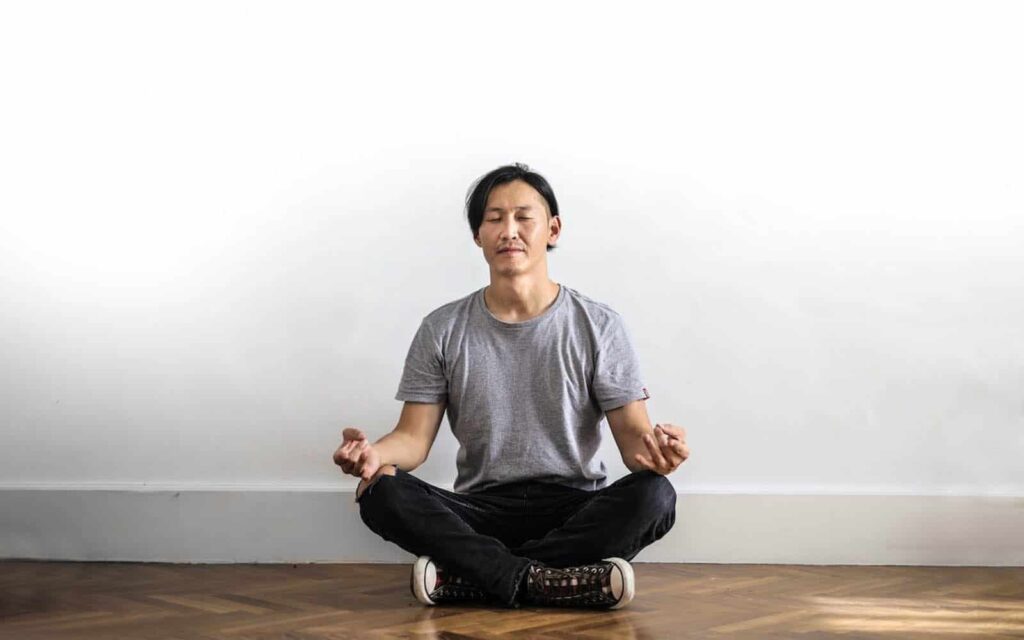
The Shifting Map: The Global Legal Status of Psilocybin in 2025
The legal and policy landscape for psilocybin is evolving at an unprecedented pace. The conversation has moved from a simple binary of legal versus illegal to a complex, nuanced patchwork of decriminalization, medical access, and state-regulated therapeutic models. As of 2025, the trend is one of cautious but steady progress, with policymakers learning from pioneering states and shifting toward more structured, legislatively-driven frameworks. For anyone considering psilocybin, understanding this dynamic map is essential.
State | Legal Status (2025) | Key Notes |
Oregon | Legal for Supervised Therapy | Measure 109 program operational since 2023. Facing significant financial and regulatory hurdles. 2025 legislation (HB 2387) aims to improve viability and integrate with traditional healthcare.33 |
Colorado | Legal for Supervised Therapy & Decriminalized | Proposition 122 created state-licensed “Healing Centers.” First licenses issued in March 2025. Also decriminalizes personal use and cultivation of several natural psychedelics.35 |
New Mexico | Legal for Supervised Therapy (Medical) | First state to legalize access via the legislature (SB-219), not a voter initiative. Program is for specific “qualifying conditions” (e.g., TRD, PTSD) and will be implemented by the Dept. of Health by 2027.36 |
Arizona | Research Funding & FDA-Track Legislation | State has funded clinical trials. SB 1555 (2025) creates a Psilocybin Advisory Board and legalizes a pharmaceutical version of psilocybin contingent on future FDA approval.33 |
California | Decriminalized in several cities | Psilocybin is decriminalized (lowest law enforcement priority) in cities including Oakland and Santa Cruz. Statewide reform efforts are ongoing.35 |
Washington | Decriminalized in several cities | Cities including Seattle, Port Townsend, Olympia, and Tacoma have decriminalized natural psychedelics. Statewide legislation for a regulated program has been introduced.35 |
Connecticut | Decriminalization Bill Active | A bill to decriminalize possession of small amounts of psilocybin (reducing the penalty to a fine) passed the House in May 2025 and is awaiting Senate action.40 |
The United States Landscape: A Patchwork of Progress
The U.S. lacks a federal framework for psilocybin access, leaving states to serve as laboratories of democracy. This has resulted in a variety of different models, each with its own lessons.
Case Study: Oregon’s Regulated Model — Lessons Learned and 2025 Legislative Fixes
Oregon made history in 2020 with Measure 109, becoming the first state to create a licensed, supervised psilocybin therapy program. While pioneering, the program’s rollout has been fraught with challenges. High operational costs, strict regulations, and an average session price of $2,500 have created significant barriers to access, leading to low patient uptake.41 The model has struggled with financial viability, with a quarter of all licensed service centers closing within the first two years and the program requiring a $3.1 million bailout from the state’s general fund to remain operational.34
In response, the Oregon legislature and the Oregon Health Authority (OHA) have been working on crucial reforms in 2025. A key piece of legislation, House Bill 2387, aims to improve the program’s sustainability by better integrating it with the traditional healthcare system. The bill provides legal protections for healthcare providers who discuss psilocybin with their patients and introduces a “dual licensure” provision, which would allow a client’s existing licensed therapist to also act as their psilocybin facilitator, ensuring better continuity of care.33 The OHA is also engaged in an active 2025 rulemaking process to refine regulations based on feedback from the first two years of operation.44 Oregon’s experience serves as a critical, if difficult, lesson for other states: economic viability and thoughtful integration with existing healthcare infrastructure are paramount for success.
Case Study: Colorado’s Healing Centers — A New Model Emerges
Learning from Oregon, Colorado’s Proposition 122, passed in 2022, established a different model. It not only decriminalized the personal possession and cultivation of several natural psychedelics but also legalized the creation of state-licensed “healing centers” where adults 21 and over can purchase and consume psilocybin under supervision.35 This model became a reality in March 2025, when the state issued its first set of licenses for these centers. Colorado’s dual approach of decriminalization alongside regulated access is being closely watched as a potential blueprint for other states.
The Newcomers: New Mexico and the Path Through Legislation
A significant development in 2025 was New Mexico becoming the third state to legalize access to psilocybin. Crucially, it was the first to do so through a bipartisan vote in the state legislature (Senate Bill 219), rather than a citizen-led ballot initiative.35 This signals a maturation of the policy debate, moving it into the formal legislative process. New Mexico’s model is more explicitly medical, limiting access to patients with specific “qualifying conditions” like treatment-resistant depression and PTSD, with the program to be implemented by the state’s Department of Health by the end of 2027.36
On the Horizon: Arizona’s Research-First Approach and Other States to Watch
Arizona has adopted a more cautious, research-focused path. In 2023, the state allocated $5 million for clinical trials on psilocybin’s medical potential.38 A major 2025 bill, Senate Bill 1555, which initially proposed a regulated therapy market, was ultimately amended to take a more incremental step. The passed version focuses on establishing an official Arizona Psilocybin Advisory Board to study the issue and creating a legal pathway for a pharmaceutical version of psilocybin
only if and when it receives future FDA approval.33 This “trigger law” approach represents a conservative, science-first strategy. Meanwhile, a flurry of bills were introduced across more than a dozen states in 2025, with active decriminalization or medical access legislation being debated in places like Connecticut, Massachusetts, and Washington, indicating that the wave of reform is far from over.39
The European Perspective: A Continent in Motion
The movement for psychedelic reform is also gaining significant momentum across Europe, characterized by both grassroots activism and progressive national policies.
The PsychedeliCare Initiative: In January 2025, a pan-European coalition launched the PsychedeliCare European Citizens’ Initiative (ECI). This is a formal democratic tool that, if it gathers one million signatures from at least seven EU member states, can compel the European Commission to formally consider proposals to increase funding for psychedelic research, standardize therapeutic guidelines, and recommend the rescheduling of these substances at the UN level.46
National Vanguards: Several countries are leading the way with established or emerging frameworks for access:
Switzerland: Has Europe’s most established program. Since 2014, physicians have been able to apply to the government for “exceptional authorization” to treat patients with psilocybin, LSD, and MDMA for conditions like depression and PTSD, making it a hub for psychedelic-assisted therapy.48
Czechia: Is poised to become a trailblazer within the EU. In 2025, its parliament passed a groundbreaking bill to allow psilocybin-assisted therapy in licensed psychiatric hospitals and clinics, which would formally integrate it into the national mental healthcare system.49
The Netherlands: Continues to offer a well-known legal alternative through the sale of psilocybin-containing “truffles” in licensed smart shops.4
The Journey After the Journey: Best Practices for Psychedelic Integration
The psychedelic experience, whether a full-dose journey or a subtle shift from a microdose, does not end when the acute effects of the substance wear off. In fact, the most crucial part of the process is just beginning. Psychedelic integration is the essential practice of processing the insights, emotions, and new perspectives gained during the experience and consciously incorporating them into daily life to create lasting, positive change.4 Without a deliberate and structured approach to integration, the profound potential of these experiences can fade, leaving behind confusing memories rather than tangible growth. The journey is merely the beginning of a lifelong path toward wholeness.4
Modern Integration Modalities: Therapy, Peer Support, and Community
As the field professionalizes, a range of tools and support systems have been developed to facilitate effective integration. This ecosystem of care recognizes that the process is both deeply personal and profoundly relational.
Psychotherapy: Engaging with a trained, knowledgeable therapist remains the cornerstone of effective integration. A therapist can provide a safe, structured container to make sense of what can be a powerful and sometimes challenging experience. Clinicians are increasingly adapting established therapeutic modalities to the unique needs of psychedelic integration, including Cognitive Behavioral Therapy (CBT), Acceptance and Commitment Therapy (ACT), and Internal Family Systems (IFS), which helps individuals understand and work with the different “parts” of their psyche that may have emerged during the experience.8
Group Therapy and Peer Support: Psychedelics often foster a deep sense of connection, and group settings can be a powerful way to extend and deepen this therapeutic factor. The emerging field of Psychedelic-Assisted Group Psychotherapy (PAGP) leverages group dynamics to enhance trust, empathy, and self-disclosure.52 Less formally, community-based peer support groups and “integration circles” offer a safe and supportive space for individuals to share their experiences with others who have undergone similar journeys, reducing feelings of isolation and normalizing the process.8
Ethical Guidance: The power of these experiences necessitates a strong ethical framework for those providing guidance. The Multidisciplinary Association for Psychedelic Studies (MAPS) has developed a comprehensive code of ethics for psychedelic psychotherapy that emphasizes principles of safety, transparency, trust, and clear boundaries, particularly around the use of touch and the prevention of sexual misconduct.52 Seeking out facilitators and therapists who adhere to such ethical codes is critical for ensuring a safe and supportive journey.
A Framework for Personal Practice: Mindfulness, Journaling, and Creative Expression
Alongside professional support, developing a personal integration practice is key to sustaining growth. These practices help to ground the insights from the psychedelic state into the fabric of everyday life. A useful framework for organizing these practices is the “Six Domains” model, which encourages reflection on how the experience has impacted one’s Mind, Body, Spirit, Relationships, Lifestyle, and connection to Nature.53
Actionable practices within this framework include:
Journaling and Reflection: The simple act of writing about the experience—the insights, the emotions, the challenging moments—is a powerful tool for processing and clarification. It helps to translate non-verbal, symbolic experiences into a narrative that can be understood and worked with over time.8
Mindfulness and Meditation: These practices are invaluable for reinforcing new, healthier patterns of thought and emotional regulation. Mindfulness helps to cultivate the self-awareness needed to notice old, unhelpful habits as they arise and consciously choose a different response, helping to solidify the “rewiring” that psychedelics can initiate.8
Creative Expression: Sometimes, insights from a psychedelic experience are difficult to articulate with words. Engaging in creative expression—such as painting, drawing, playing music, or dancing—can provide an essential outlet for processing these non-verbal emotions and ideas, allowing for a deeper level of integration.8
Connection to Nature: Many people report a deepened sense of connection to the natural world during a psychedelic experience. Intentionally fostering this connection afterward through activities like hiking, gardening, or simply spending quiet time in a park can be a powerful way to enhance well-being and stay connected to the sense of awe and interconnectedness discovered during the journey.53
Journey Beyond the Trip: Psychedelic Integration
Psychedelic integration is a crucial process that helps individuals incorporate insights, emotions, and attitudes from their psychedelic experiences into their daily lives. This process aims to achieve a sense of “wholeness” by addressing intentions such as taking responsibility for mistakes, speaking one’s truth, or reconnecting with neglected parts of oneself.
Psychedelic experiences can dramatically change one’s perspective on themselves, others, and their goals. Integration is the process that brings these insights into reality. For example, if an individual realizes the importance of self-care during their experience, the integration process would involve putting that into practice by adjusting their sleep schedule, exercising more, or changing their diet.
Integration processes vary significantly among individuals, as each person’s experience and intentions are unique. The activities involved in integration can range from simple tasks like calling a loved one to more complex, ongoing endeavors like speaking one’s authentic truth consistently.
There are three common categories of psychedelic integration:
-
Physical or somatic integration
-
Psycho-spiritual integration
-
Emotional integration
Physical integration focuses on bodily sensations and feelings, while psycho-spiritual integration deals with one’s perception of themselves, others, and the world. Emotional integration involves processing emotions and feelings that emerge in life, including grief, forgiveness, and gratitude.
The duration of psychedelic integration varies depending on the person, their intentions, and the insights gained from the experience. Some actions can be carried out quickly, while others may take weeks, months, or even years. Integration can also be a lifelong process, as individuals and their environments continuously evolve.
Psychedelic integration is vital because it turns the potential insights from the experience into tangible changes in one’s life. Without proper integration, the lasting impact of psychedelic therapy may not be fully realized, making integration an essential component of the psychedelic journey.
Conclusion: The Path Forward for Psilocybin Microdosing
Synthesizing the Science, Hype, and Hope of 2025
As we stand in 2025, the world of psilocybin is a landscape of immense promise, rapid evolution, and necessary caution. The journey from a fringe interest to a subject of serious clinical and legislative consideration has been swift, and the path forward requires a clear-eyed synthesis of the science, the hype, and the hope.
The clinical science supporting the use of macro-dose psilocybin-assisted therapy for conditions like depression is now robust and compelling. Our deepening understanding of its mechanisms—particularly its ability to modulate brain networks like the DMN and, most importantly, to promote structural neuroplasticity—provides a firm biological basis for its therapeutic effects. This research is expanding into a host of other challenging conditions, offering new hope where conventional treatments have fallen short.
In contrast, the science of microdosing remains a more nuanced and developing field. While anecdotal reports of its benefits are widespread, rigorous clinical research has yet to definitively separate its pharmacological effects from the powerful influence of placebo and positive expectancy. This does not invalidate the experiences of many who find it beneficial, but it does demand a sophisticated perspective that acknowledges the profound role of mindset and intention in any therapeutic endeavor.
Simultaneously, the legal landscape is maturing. The initial wave of city-level decriminalization and broad voter-led initiatives is giving way to more complex, medically-focused regulatory systems being crafted in state legislatures. The challenges faced by Oregon’s pioneering program have provided invaluable lessons for other states, highlighting that the future of safe and equitable access lies in thoughtful policy that is both economically viable and seamlessly integrated with the existing healthcare system.
A Final Emphasis on Responsible Exploration
The transformative potential of psilocybin is undeniable, but it is a tool, not a panacea. Its power demands respect, and its exploration requires responsibility. The foundational pillars of a safe and meaningful journey remain constant: consult with knowledgeable medical professionals to ensure it is an appropriate path for you; understand and abide by the laws in your region; set clear and conscious intentions for your journey; and, most critically, prioritize the process of integration to translate insights into lasting, positive change.
Daytryp’s Vision: A Future of Safe, Legal, and Transformative Psychedelic Care
At Daytryp Health, we envision a future where psychedelic-assisted therapies are no longer on the frontier but are a fully integrated, evidence-based, and accessible part of mainstream mental healthcare. We see a world where these powerful tools, guided by clinical expertise and ethical care, can help countless individuals heal from trauma, overcome depression, and unlock their full potential for a more balanced and fulfilling life. As the science continues to advance and the policies continue to evolve, our commitment is to remain at the forefront of this movement, serving as a trusted source of education and a future provider of the highest standard of safe, legal, and transformative psychedelic care.
Works cited
Psychedelics & Healing Initiative Trends for 2025 – Global Wellness Institute, accessed June 17, 2025, https://globalwellnessinstitute.org/global-wellness-institute-blog/2025/04/02/psychedelics-healing-initiative-trends-for-2025/
Believers say microdosing psychedelics helps them. Scientists are trying to measure the claims – Colorado Public Radio, accessed June 17, 2025, https://www.cpr.org/2025/04/17/microdosing-health-benefits-lsd-psilocybin-research/
Psychedelic Science 2025 Unveils Science, Studies & Trials Tracks Showcasing Next Generation in Brain Imaging, Clinical Trials, and Neuroplasticity – GlobeNewswire, accessed June 17, 2025, https://www.globenewswire.com/news-release/2025/06/11/3097956/0/en/Psychedelic-Science-2025-Unveils-Science-Studies-Trials-Tracks-Showcasing-Next-Generation-in-Brain-Imaging-Clinical-Trials-and-Neuroplasticity.html
Page_copy_daytryp.com (1).txt
Microdosing Psychedelics: A Trend or a Treatment for Addiction Recovery?, accessed June 17, 2025, https://westlarecovery.com/microdosing-psychedelics-a-trend-or-a-treatment-for-addiction-recovery/
What Is Microdosing? – WebMD, accessed June 17, 2025, https://www.webmd.com/mental-health/microdosing
Does microdosing magic mushrooms help people with mental health issues? Science is trying to find out – CBC, accessed June 17, 2025, https://www.cbc.ca/news/health/magic-mushrooms-psilocybin-microdosing-study-research-1.7049229
Your Psychedelic Therapy Journey Continues: Integration 101 – ADAA.org, accessed June 17, 2025, https://adaa.org/learn-from-us/from-the-experts/blog-posts/consumer-professional/your-psychedelic-therapy-journey
Believers say microdosing psychedelics helps them. Scientists are trying to measure the claims | AP News, accessed June 17, 2025, https://apnews.com/article/microdosing-lsd-mushrooms-psychedelic-psilocybin-390c99ba54ef9d75727f39e2ec78fb34
A nine-step guide to a sensible microdosing programme | Aeon Essays, accessed June 17, 2025, https://aeon.co/essays/a-nine-step-guide-to-a-sensible-microdosing-programme
Mushrooms, Microdosing, and Mental Illness: The Effect of Psilocybin on Neurotransmitters, Neuroinflammation, and Neuroplasticity – PubMed, accessed June 17, 2025, https://pubmed.ncbi.nlm.nih.gov/39897712/
Psilocybin and Neuroplasticity: A Review of Preclinical and Clinical …, accessed June 17, 2025, https://open-foundation.org/psilocybin-and-neuroplasticity/
The Emergence of Psilocybin in Psychiatry and Neuroscience – PMC – PubMed Central, accessed June 17, 2025, https://pmc.ncbi.nlm.nih.gov/articles/PMC12030455/
Mushrooms, Microdosing, and Mental Illness: The Effect of Psilocybin on Neurotransmitters, Neuroinflammation, and Neuroplasticity – Dove Medical Press, accessed June 17, 2025, https://www.dovepress.com/mushrooms-microdosing-and-mental-illness-the-effect-of-psilocybin-on-n-peer-reviewed-fulltext-article-NDT
Psychedelic treatment and mental health: Navigating a longer trip with optimism, accessed June 17, 2025, https://www.apa.org/monitor/2025/01/trends-psychedelic-treatments
Efficacy and acceptability of psilocybin for primary or secondary …, accessed June 17, 2025, https://pmc.ncbi.nlm.nih.gov/articles/PMC10902050/
Efficacy of psilocybin for treating symptoms of depression: systematic review and meta-analysis – PubMed Central, accessed June 17, 2025, https://pmc.ncbi.nlm.nih.gov/articles/PMC11062320/
Psychedelics Research and Psilocybin Therapy – Johns Hopkins Medicine, accessed June 17, 2025, https://www.hopkinsmedicine.org/psychiatry/research/psychedelics-research
Single-Dose Psilocybin for Depression With Severe Treatment Resistance: An Open-Label Trial – PubMed, accessed June 17, 2025, https://pubmed.ncbi.nlm.nih.gov/39741440/
Clinical trial explores the power of psilocybin to treat depression – UCHealth, accessed June 17, 2025, https://www.uchealth.org/today/new-psilocybin-study-targets-anhedonia-and-treatment-resistant-major-depressive-disorder/
Psilocybin clinical trial for Alcohol Use Disorder & PTSD: PsiloStudy, accessed June 17, 2025, https://ntap.psychiatry.uw.edu/psilostudy/
UCSF Psilocybin Clinical Trials for 2025 — San Francisco Bay Area, accessed June 17, 2025, https://clinicaltrials.ucsf.edu/psilocybin
The Biggest Lie About Microdosing – YouTube, accessed June 17, 2025, https://m.youtube.com/watch?v=V6aQ7bpdIIo&pp=ygUGI3RyeXBn
Is microdosing a placebo? A rapid review of low-dose LSD and psilocybin research – PMC, accessed June 17, 2025, https://pmc.ncbi.nlm.nih.gov/articles/PMC11311906/
Everybody’s on mushrooms – Soho House, accessed June 17, 2025, https://www.sohohouse.com/house-notes/issue-006/food-and-drink/magic-mushrooms
Combining Low-Dose MDMA with Psilocybin or LSD May Enhance the Acute Subjective Psychedelic Experience | Research Communities by Springer Nature, accessed June 17, 2025, https://communities.springernature.com/posts/combining-low-dose-mdma-with-psilocybin-or-lsd-may-enhance-the-acute-subjective-psychedelic-experience
GoodMood Biotin Shampoo and Conditioner Bars for Hair Growth – Solid Set to Combat Thinning Hair Loss : Beauty & Personal Care – Amazon.com, accessed June 17, 2025, https://www.amazon.com/GoodMood-Biotin-Shampoo-Conditioner-Thinning/dp/B0CJZ7KJZJ
Interview Apollo Tea – Usage – Saint-Louis, accessed June 17, 2025, https://www.saint-louis.com/en/interview-apollo-usage
Local on North, accessed June 17, 2025, https://www.londuluth.com/
GOOD MOOD Truck, accessed June 17, 2025, https://www.goodmoodtruck.com/
2025 Buyers Guide: Best Magic Mushroom Edibles of 2025 by The Cannabis Pharmacy, accessed June 17, 2025, https://www.prweb.com/releases/2025-buyers-guide-best-magic-mushroom-edibles-of-2025-by-the-cannabis-pharmacy-302456139.html
Psilocybin Legal Status by State and Federal Law – Recovered, accessed June 17, 2025, https://recovered.org/hallucinogens/psilocybin/psilocybin-legal-status
State psychedelics legalization and policy roundup — June 2025 – Reason Foundation, accessed June 17, 2025, https://reason.org/commentary/state-psychedelics-legalization-and-policy-roundup-june-2025/
Oregon’s Psychedelic Service Centers Are Closing Amid High Costs …, accessed June 17, 2025, https://www.wweek.com/news/2025/06/03/oregons-psychedelic-service-centers-are-closing-amid-high-costs-and-tough-regulation/
Psilocybin decriminalization in the United States – Wikipedia, accessed June 17, 2025, https://en.wikipedia.org/wiki/Psilocybin_decriminalization_in_the_United_States
New Mexico Becomes Third State in the U.S. to Legalize Access to Psilocybin, accessed June 17, 2025, https://www.foley.com/insights/publications/2025/04/new-mexico-becomes-third-state-us-legalize-access-psilocybin/
Arizona Lawmakers Approve Psychedelics Bills To Create Psilocybin Advisory Board And Fund Ibogaine Research – Marijuana Moment, accessed June 17, 2025, https://www.marijuanamoment.net/arizona-lawmakers-approve-psychedelics-bills-to-create-psilocybin-advisory-board-and-fund-ibogaine-research/
ARIZONA STATE SENATE – LegiScan, accessed June 17, 2025, https://legiscan.com/AZ/supplement/SB1555/id/521337/Arizona-2025-SB1555-SENATE_FACT_SHEET_02-17-2025_HHS.pdf
2025’s Psychedelic Policy Surge: A State-by-State, Bill-by-Bill Analysis, accessed June 17, 2025, https://psychedelicalpha.com/news/2025s-psychedelic-policy-surge-a-state-by-state-bill-by-bill-analysis
CT House narrowly votes to decriminalize ‘magic mushrooms’ – CT Mirror, accessed June 17, 2025, https://ctmirror.org/2025/05/19/ct-decriminalize-magic-mushrooms/
Can Oregon’s pioneering psilocybin therapy bounce back with new legislation | kgw.com, accessed June 17, 2025, https://www.kgw.com/article/entertainment/television/programs/straight-talk/can-oregons-ground-breaking-psilocybin-therapy-bounce-back-with-new-legislation/283-74622490-030c-4aaa-84c9-55dd7cabdc61
Psilocybin industry will focus on fine-tuning first-in-the-nation program in 2025, accessed June 17, 2025, https://oregoncapitalinsider.com/2024/12/13/psilocybin-industry-will-focus-on-fine-tuning-first-in-the-nation-program-in-2025/
A Second State Gets Ready for Psychedelic Therapy – Healing Advocacy Fund, accessed June 17, 2025, https://healingadvocacyfund.org/news/a-second-state-gets-ready-for-psychedelic-therapy
UPDATED! – OPS 2025 Spring Newsletter – GovDelivery, accessed June 17, 2025, https://content.govdelivery.com/accounts/ORDHS/bulletins/3d9aec7
Prevention and Wellness – Oregon Psilocybin Services – Administrative Rules, accessed June 17, 2025, https://www.oregon.gov/oha/ph/preventionwellness/pages/psilocybin-administrative-rules.aspx
PsychedeliCare Launches First European Citizens’ Initiative Demanding Political Action on Psychedelic-Assisted Therapies, accessed June 17, 2025, https://psychedelicalpha.com/news/psychedelicare-launches-first-european-citizens-initiative-demanding-political-action-on-psychedelic-assisted-therapies
Europe’s psychedelics petition push – Politico, accessed June 17, 2025, https://www.politico.com/newsletters/future-pulse/2025/01/24/eu-petition-push-for-psychedelics-00200293
Switzerland is home to Europe’s only psychedelics treatment – Swissinfo, accessed June 17, 2025, https://www.swissinfo.ch/eng/multinational-companies/switzerland-is-home-to-europes-only-psychedelics-treatment/89195943
Czechia poised to legalize magic mushrooms for mental health treatment – Expats.cz, accessed June 17, 2025, https://www.expats.cz/czech-news/article/czechia-could-become-a-trailblazer-by-legalizing-magic-mushrooms-for-mental-health-treatment
The Integration – Psychedelic Science, accessed June 17, 2025, https://www.psychedelicscience.org/the-integration
Trauma Therapists and Mental Health Professionals Called to Explore Emerging Psychedelic-Assisted Therapies at Psychedelic Science 2025 | Morningstar, accessed June 17, 2025, https://www.morningstar.com/news/globe-newswire/9445550/trauma-therapists-and-mental-health-professionals-called-to-explore-emerging-psychedelic-assisted-therapies-at-psychedelic-science-2025
Best Practices in Psychedelic-Assisted Group Psychotherapy, accessed June 17, 2025, https://societyforpsychotherapy.org/best-practices-in-psychedelic-assisted-group-psychotherapy/
The MAPS Psychedelic Integration Workbook, accessed June 17, 2025, https://spectrumpsychwa.com/wp-content/uploads/2025/04/MAPS-Integration-Workbook.pdf
Frequently asked questions
Psilocybin microdosing involves the consumption of small, sub-perceptual doses of psilocybin mushrooms, which typically do not cause intense psychedelic effects. Instead, these doses may provide subtle benefits such as enhanced focus, creativity, mood improvement, and increased self-awareness, among others.
The legality of microdosing or ingesting psilocybin mushrooms varies greatly depending on your location. It is essential to research and understand the local laws and regulations surrounding psilocybin mushrooms before considering microdosing. In some areas, possession and cultivation of psilocybin mushrooms are illegal, while other regions have decriminalized or are moving toward legalization for therapeutic purposes.
A standard psilocybin microdose is generally around 200 mg (0.2 grams). However, this amount may need to be adjusted based on factors such as the potency of the mushrooms and individual body weight or sensitivity. It is always best to start with a lower dose and gradually increase it to find the optimal dosage for your unique needs.
Microdosing is generally considered safe when practiced responsibly. It is essential to start with a low dose, follow a structured microdosing schedule, and consult a healthcare professional if you have any pre-existing mental health conditions or concerns. Keep in mind that microdosing is not suitable for everyone and may exacerbate certain mental health issues in some individuals.
Many individuals have found that combining microdosing with therapy can enhance self-insight, making it easier to address difficult topics and explore personal experiences in a more profound way. It is important to discuss this option with your therapist or mental health professional to determine if it is appropriate for your unique circumstances.
A typical microdosing regimen often lasts for 6-8 weeks, followed by a break of a month or two. This break allows time for self-assessment, determining the effectiveness of the microdosing regimen, and deciding whether to continue or adjust your approach.
To accurately measure your psilocybin microdose, it is crucial to use a precise digital scale capable of measuring small amounts. Grinding the mushrooms into a fine powder can also help ensure a more consistent dosing experience, as it allows for more even distribution of the active compounds.

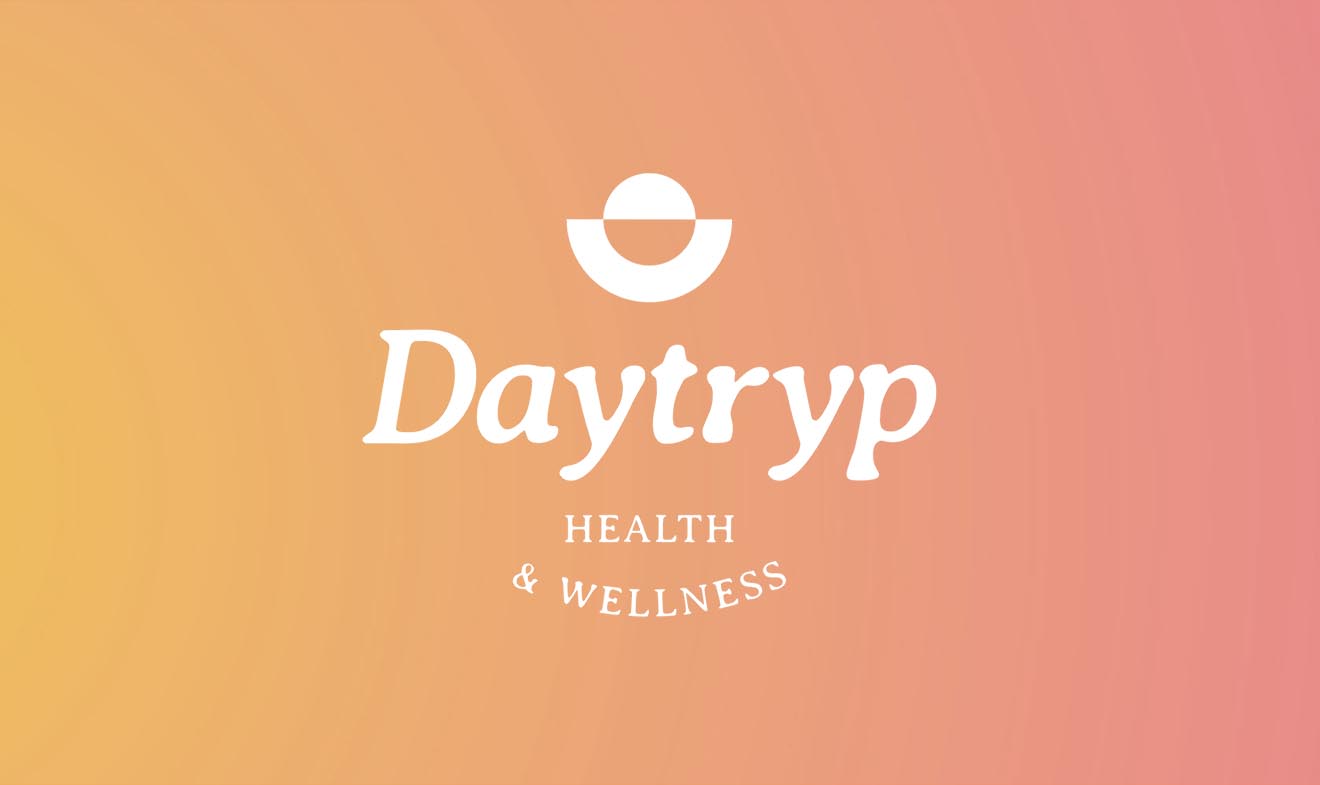

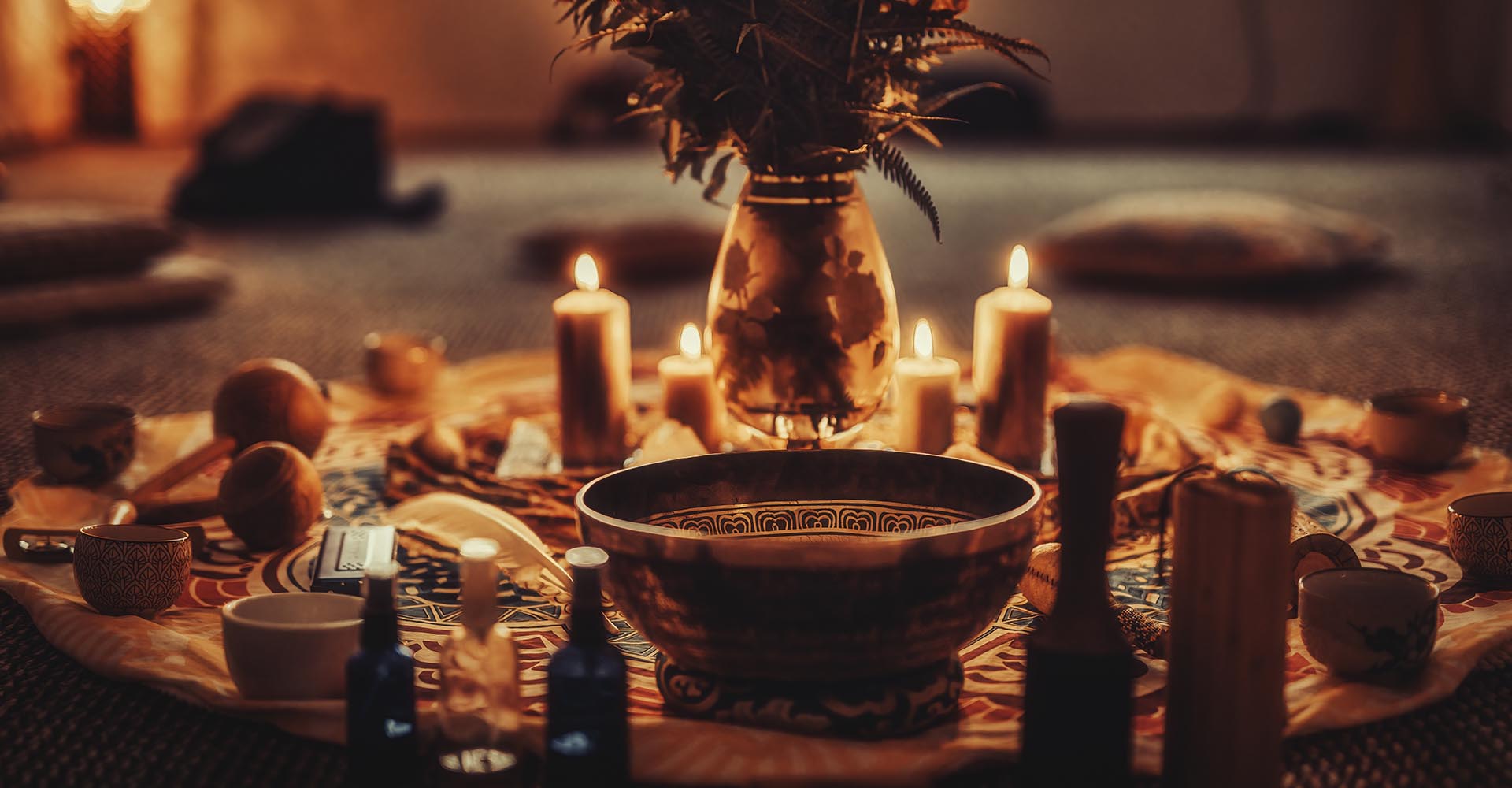
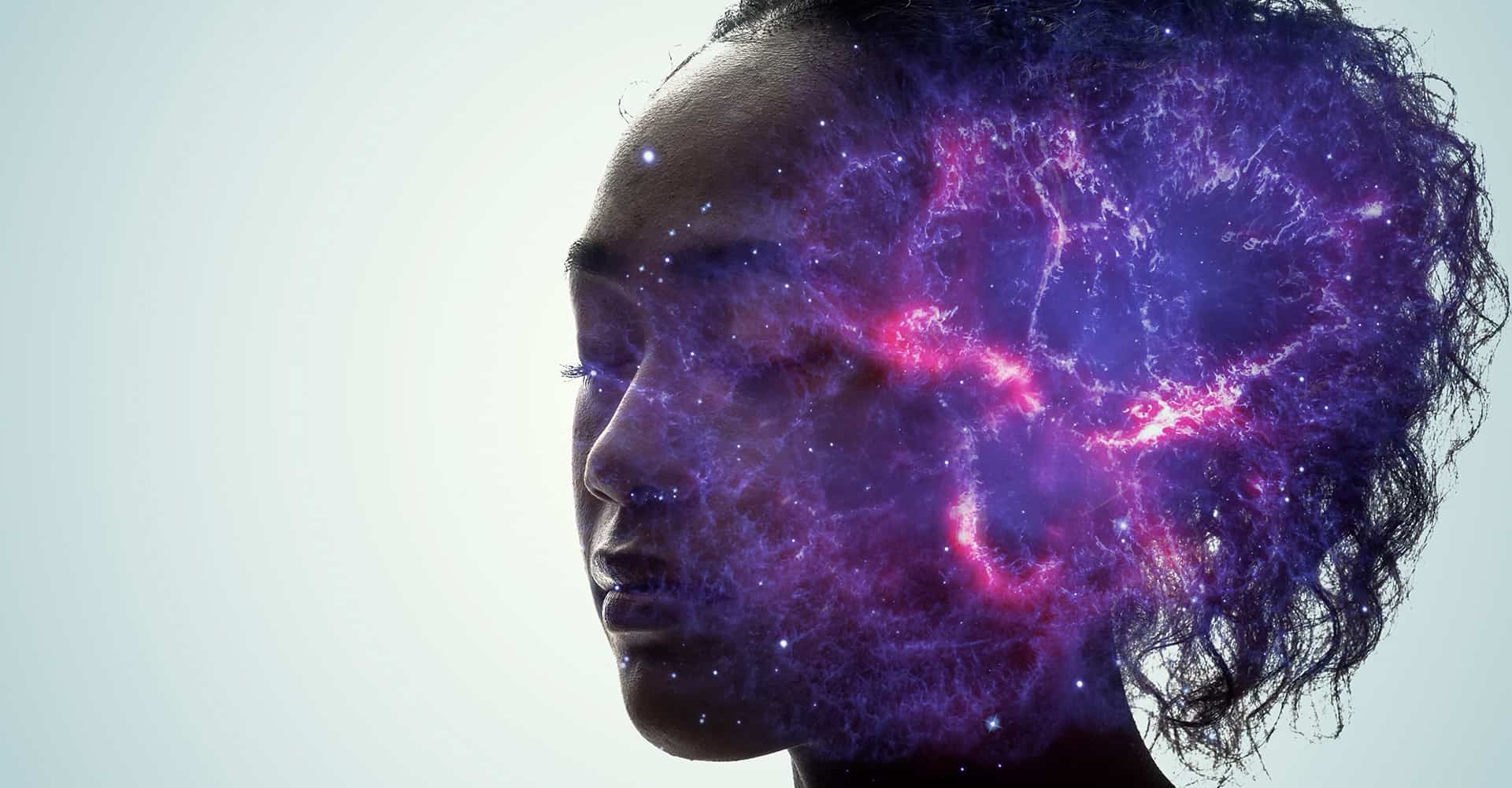





 Daytryp Health has taken
Daytryp Health has taken  The
The 